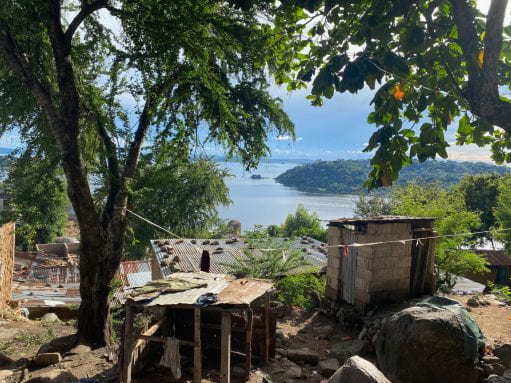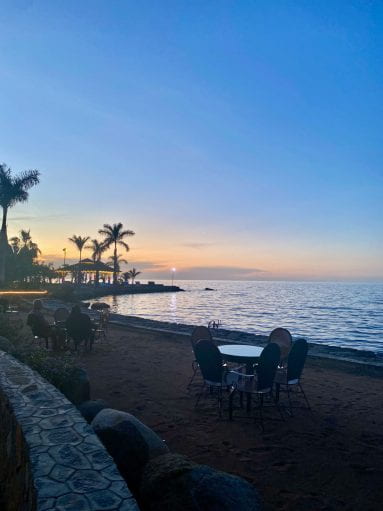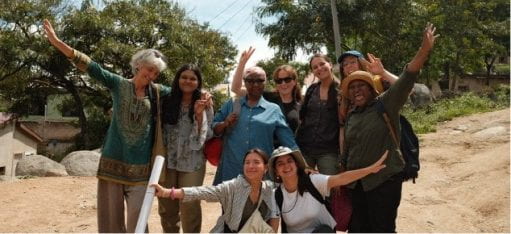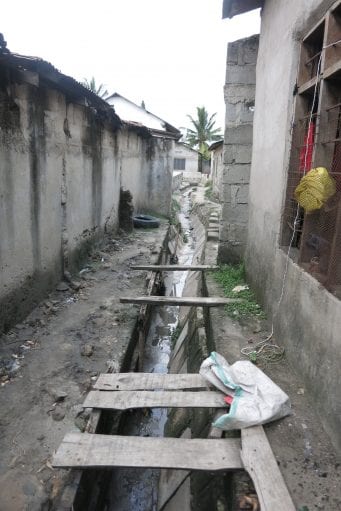The temporality and plurality of sustainability
By Dana Sousa-Limbu, on 20 September 2023
A blog written by Sophie Avent, 2022-23 student of the Environment and Sustainable Development MSc
Like all professions, academia has its own jargon; words that are typically unused in day-to-day life. During my albeit brief foray back into the world of academia, I frequently found academic terminology inaccessible and intimidating. Words such as ‘discourse’, ‘hypothesizing’ and ‘methodology’ are words that I seldom muttered before and will use scarcely again in the future. Whilst academia is its own profession, like many others it must be able to converse outside its own sphere. For the disciplines of sustainability and environment, the ability to connect with sectors and people outside its four walls is arguably its most important task. For cities, countries, and the World to meet the Sustainable Development Goals (SDGs) we are reminded that solutions need to be context specific and co-produced. For this to be achieved we require knowledge diversification, collaboration and ground up strategies that bring together local citizens, local government, and academics alongside other professionals.
Throughout the Environment and Sustainable Development master’s at UCL we have developed knowledge on the topic of sustainability and the environment. It encompasses balancing environmental considerations and social justice, and our program has been shaped to expose the importance of decolonizing knowledge, historicizing, and identifying unequal power distribution that has shaped environmental injustice. Our collective positionality, however, is one of Global North privilege and Western knowledge, from which it is all too easy to critique practices in the Global South. We frequently base our critiques solely on literature review, from which I question if we can ever truly understand the lived experience of those situations we are critiquing and the complexities that accompany them. In the era of decolonizing and diversifying knowledge, I have frequently found this somewhat ironic. Yet, it has reinforced the importance of collaboration and engagement with a cross-section of diverse stakeholders from geographies and disciplines to ensure a holistic view is obtained.
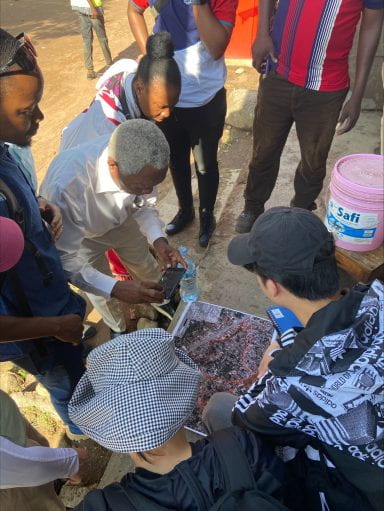
Students and research project partners gathering around a map
In April 2023, we embarked on our overseas practice engagement to Mwanza, Tanzania. Arguably, the perfect opportunity to put our learning into practice and work alongside residents, NGO partners, and the city utility (MWAUWASA). Our research focused on advancing just sanitation in the city of Mwanza and provided an opportunity to learn from others beyond academia. Mwanza is a city with limited water and sanitation infrastructure, a situation that is not uncommon in Africa. In 2015 African leaders committed to achieving universal access to adequate and sustainable sanitation, hygiene services and eliminate open defecation by 2030.
In Mwanza, our research considered the sustainability of the simplified sewerage system (SSS). SSS is a sewerage system technology that collects household wastewater in small-diameter pipes laid at shallow levels, making it significantly less expensive compared to conventional sewerage technology. Mwanza’s water and sewerage utility has implemented the SSS that is spatially focused on deploying the technology in unplanned settlements. Here, the landscape is steep, rocky, and predominantly only accessible via footpaths, making it a good fit for the technology. The SSS connects to the centralized sewerage system, thereby expanding the networked infrastructure. Prior to the ongoing SSS implementation, only around 5% of the city was connected to the sewerage network, perhaps the only positive legacy of colonial rule. Today, coverage extends to around 25% and SSS beneficiaries collectively commend the development as “life changing”.
Notwithstanding the considerable advancement of sanitation service coverage achieved via SSS, we suggested MWAUWASA expand their feasibility study to consider environmental impacts and the long-term financial commitments wedded to beneficiaries once connected to the service. The latter concern being that the ongoing financial commitments would be unsustainable for some residents. Our suggestion was met with opposition and the response from the SSS project manager (resident expert on the project) outlined that such an approach would have drained all the available funds, leaving nothing for infrastructure development. Whilst we failed to effectively articulate our suggestion, I took pause at the response. Cognizant of epistemic justice and decolonial thought, it reminded me that in the spirit of contextualization, knowledge diversification, and sensibility, we should not assume our suggestions would be met without challenge.
Without both conscious thought, attention and/or challenge there is risk of colonization manifesting in new forms. Further, and in acknowledgment of the tension between progress and sustainability that ricocheted through both our suggestion and the response that followed, I became aware that I had overlooked a few critical considerations in Mwanza.
The first is the importance of ethical responsibility in context. Remorse describes African ethical responsibility as promoting living, avoiding death, and leaving the land untouched for future generations (Kumalo, 2017). This stance alters the objectives of sustainability which in turn modifies the output of just decision making, bringing to life the plurality and relational nature of both concepts.
Second, was the realization that the World has competing development priorities, that do not always complement one another, or fully align. In the Global North, the priority is climate change and its consequences; biodiversity loss, extreme weather conditions, ice sheets melting, etc. Whilst these eventualities are already materializing, we are striving towards prevention rather than facilitation. In Mwanza, and in Africa more broadly, the main development challenge is to end poverty. Poverty is multidimensional and encompasses health, education, and living standards. At its core it is people-centered. In Mwanza, the utility priority is the delivery of wastewater services to improve sanitation, thereby contributing towards alleviating poverty and protecting the water quality of Lake Victoria, the city’s water source. Of a lesser concern are the future potential environmental consequences of the technical solution upon the land. In contrast to many development projects, MWAUWASA has focused on developing services within the informal spaces of the city for low-income residents, reinforcing resident’s right to the city. The tangible output of ethical decision making cannot be critiqued and has contributed towards facilitating environmental justice for beneficiaries, a decision that should be championed.
Lastly, I overlooked the temporary nature of sustainable development discourse. The LV WATSAN (Lake Victoria Water and Sanitation) project, under which the SSS forms part of was first launched in 2004. Nineteen years ago, the dominant development discourse was the Millennium Development Goals (MDGs). Today, the focus is Agenda 2030 and its seventeen Sustainable Development Goals (SDGs) which now include a specific goal for water and sanitation (SDG 6). In this respect, LV WATSAN was ahead of the game. But in others, it is another example of a project that is contributing to the slow progress of SDG 6. It has taken nineteen years for Mwanza to develop wastewater services to cover circa one-quarter of the city, a testament to the fact that progress in sanitation can be made, albeit often at a snail’s pace. In nineteen years’ time, the development discourse will no doubt change, and accordingly, I wonder if the mainstream development discourse will deem this development unsatisfactory.
2023 marks the halfway point towards Agenda 2030 and globally all SDGs are off track. Limited funding is often cited as the dominant reason for the slow progress of SDG 6. But on reflection, I ponder if a contributing factor may be due to Northern epistemic superiority. Northern epistemic superiority cuts across all sectors but I fear it will not dissipate unless our blinkers are removed regularly. Collaboration through research is one way to facilitate such removal in academia. As we have experienced in Mwanza, research forces you to step away from academic jargon that is by nature superior, and converse in the most accessible way feasible alongside research partners, that in turn harnesses knowledge development.
Our field trip taught me the practicalities of embracing all things ‘local’ and that ‘context’ incorporates landscape, knowledge, and ethics, which cannot be learned from texts but from people who are resident experts in the local context. It also taught me the plurality of sustainability and the changeable priorities of development. For true progress to be made and epistemic justice to become a reality in research, it is imperative to trust local partners, residents, and professionals who have lived experience and intrinsic knowledge of local ethics that result in just decision making. We need to be accepting that the outcomes of due process will be just, although they might present a rich dichotomy. This will facilitate our ability to embrace the plurality of sustainability, and the differing development priorities across geographies. Without embracing and confronting the limitations of Northern epistemic superiority, development outcomes will be prohibited, and existing environmental injustices will be reinforced.
I am, however, still left wondering if this is enough or if this reflection can become reality. Moreover, whilst I am no closer to grasping how I consider temporality in the context of sustainability, I do now question if our status quo limits our ability to fully understand, consider and justify others’ development priorities that do not fully align with our own.
References
Elden, S. (2007). ‘There is a Politics of Space because Space is Political: Henri Lefebvre and the Production of Space’, Radical Philosophy Review. V.10, p.101-116.
Kumalo, S. (2017). ‘Problematising development in sustainability: epistemic justice through an African ethic’. Southern African Journal of Environmental Education. V. 33 (1), p. 14–24.
Plessis, C. du. (2001). ‘Sustainability and sustainable construction: the African context’. Building Research and Information: The International Journal of Research, Development and Demonstration. V. 29 (5), p. 374–380.
Sustainable Sanitation Alliance (n.d.). The Ngor Declaration on Sanitation and Hygiene. Available at: https://www.susana.org/_resources/documents/default/3-2260-7-1433512846.pdf (Accessed 8 May 2023).
UN- Habitat (2023). (LVWATSAN-Mwanza) Project: Mobilization and Institutional Facilitation of Sanitation. Available at: https://unhabitat.org/the-lake-victoria-water-and-sanitation-project#:~:text=LVWATSAN%20was%20designed%20by%20UN,for%20the%20utilities%20and%20town (Accessed 10 May 2023).
 Close
Close


